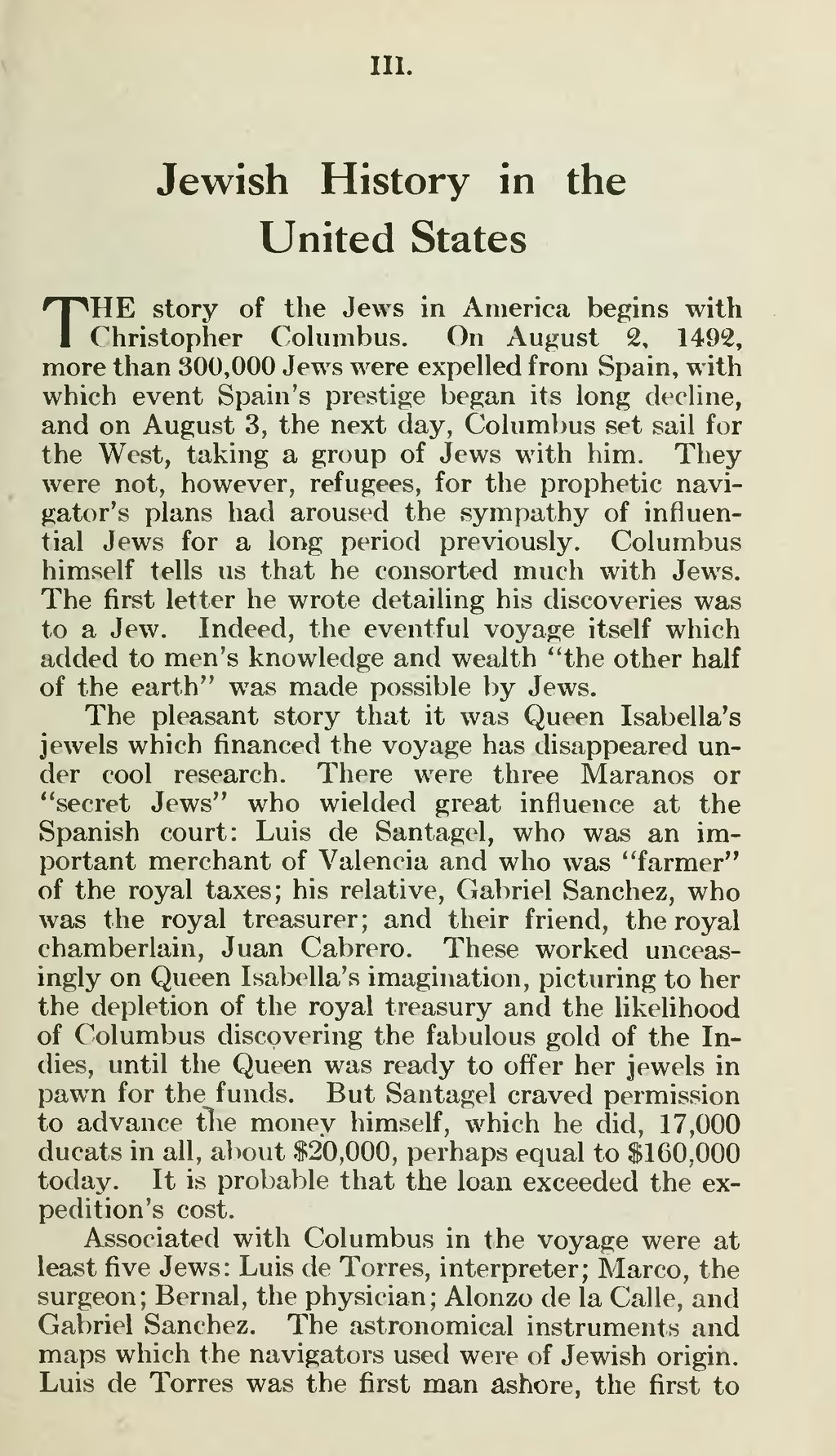THE story of the Jews in America begins with Christopher Columbus. On August 2, 1492, more than 300,000 Jews were expelled from Spain, with which event Spain’s prestige began its long decline, and on August 3, the next day, Columbus set sail for the West, taking a group of Jews with him. They were not, however, refugees, for the prophetic navigator’s plans had aroused the sympathy of influential Jews for a long period previously. Columbus himself tells us that he consorted much with Jews. The first letter he wrote detailing his discoveries was to a Jew. Indeed, the eventful voyage itself which added to men’s knowledge and wealth “the other half of the earth” was made possible by Jews. The pleasant story that it was Queen Isabella’s jewels which financed the voyage has disappeared under cool research. There were three Maranos or “secret Jews” who wielded great influence at the Spanish court: Luis de Santagel, who was an important merchant of Valencia and who was “farmer” of the royal taxes; his relative, Gabriel Sanchez, who was the royal treasurer; and their friend, the royal chamberlain, Juan Cabrero. These worked unceasingly on Queen Isabella’s imagination, picturing to her the depletion of the royal treasury and the likelihood of Columbus discovering the fabulous gold of the Indies, until the Queen was ready to offer her jewels in pawn for the funds. But Santagel craved permission to advance the money himself, which he did, 17,000 ducats in all, about $20,000, perhaps equal to $160,000 today. It is probable that the loan exceeded the expedition’s cost. Associated with Columbus in the voyage were at least five Jews: Luis de Torres, interpreter; Marco, the surgeon; Bernal, the physician; Alonzo de la Calle, and Gabriel Sanchez. The astronomical instruments and maps which the navigators used were of Jewish origin. Luis de Torres was the first man ashore, the first to
